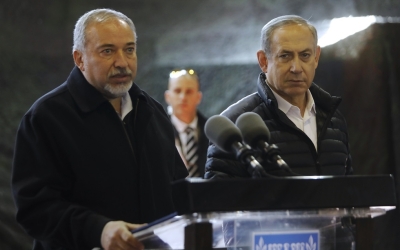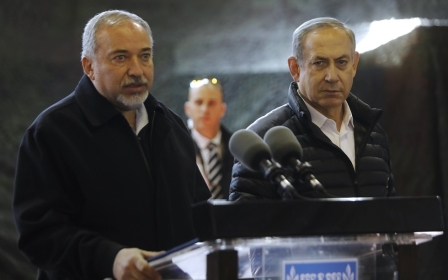Palestinian Arab Joint List to reform for Israel's September election

The Joint List, largely comprising Palestinian citizens of Israel, is set to be resurrected following a meeting between the leaders of the constituent parties.
Representatives of Hadash, Taal, Balad and the United Arab List announced the reforming of the alliance on Thursday, ahead of the upcoming 17 September election in Israel.
In a statement they said they were "fully committing to running together in a joint list, and start formulating the political agenda and strategic management plan".
The Joint List had been the third-largest group in the parliament following elections in 2015, but in February the group split into two electoral alliances, with Hadash and Taal in one group, and Balad and the United Arab List in the other.
Mansour Dehamshe, secretary general of the left-wing Hadash, and Ibrahim Hijazi, secretary general of the Islamist United Arab List, confirmed the details of the reformation in a morning interview with the AShams radio station.
The slate for the parties has yet to be worked out, with the Israeli newspaper Haaretz reporting that there have been disagreements over the representation of Druze, women and Bedouin candidates.
Dehamshe said the parties were expecting to reach a final agreement by 30 June.
Elections on 9 April failed to lead to the formation of a new government after talks broke down between Prime Minister Benjamin Netanyahu and potential coalition partners.
Netanyahu failed to win the support of the ultra-nationalist Yisrael Beiteinu party leader Avigdor Lieberman, who clashed with the Likud premier over a bill to force ultra-Orthodox yeshiva students to serve in the military.
Middle East Eye delivers independent and unrivalled coverage and analysis of the Middle East, North Africa and beyond. To learn more about republishing this content and the associated fees, please fill out this form. More about MEE can be found here.





